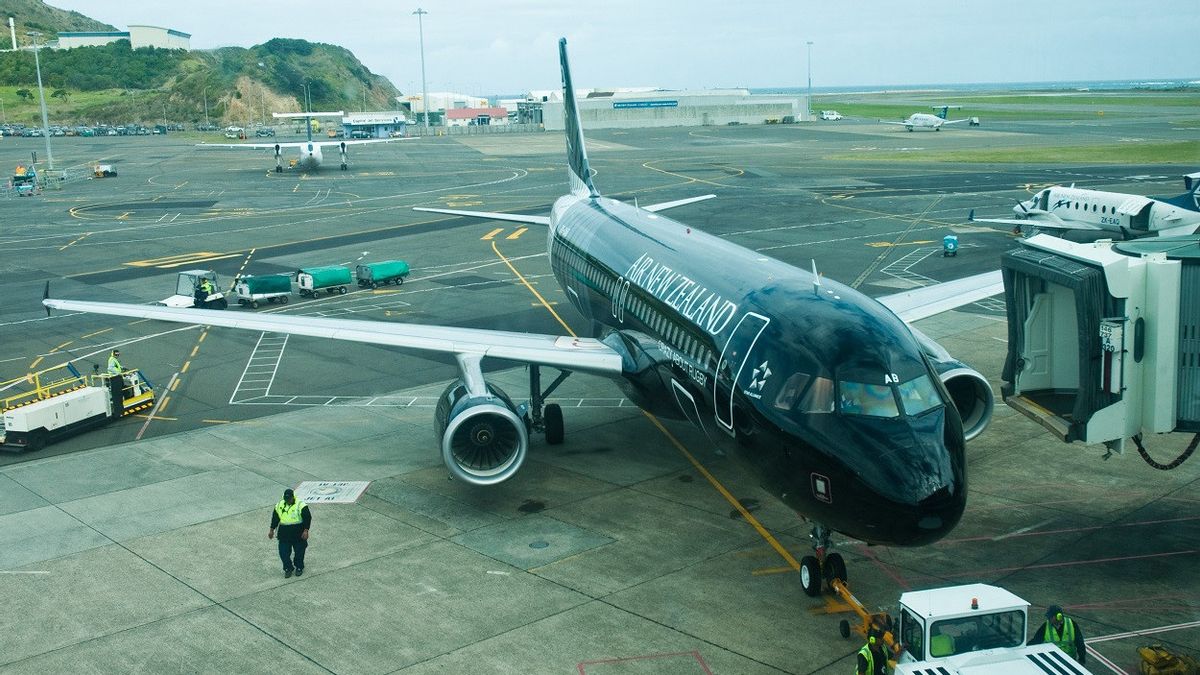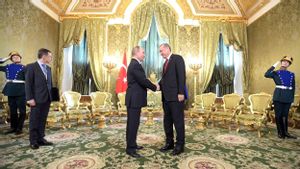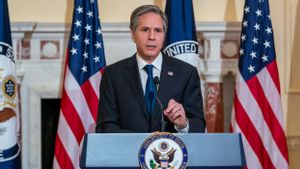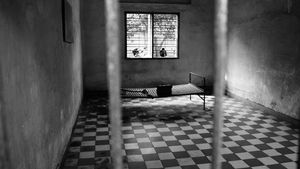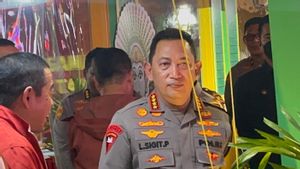JAKARTA - New Zealand on Thursday announced the gradual reopening of its borders which have largely been closed for two years due to the COVID-19 pandemic, with travel agencies saying self-isolation rules needed to be removed, to revive the tourism sector.
New Zealanders vaccinated in Australia can travel home from 27 February, without the requirement to stay in a state-run quarantine facility. Meanwhile, New Zealanders around the world will be able to do so two weeks later, Prime Minister Jacinda Ardern said.
Next, vaccinated foreign backpackers and some skilled workers can come to the country from March 13. Meanwhile, up to 5.000 international students will be allowed in starting April 12.
There are tourists from Australia and other visa-free countries will only be allowed to enter in July. And, travelers from around the world will be barred from entry until October under the plan.
PM Ardern said all arriving travelers would still have to undergo a 10-day quarantine.
Opening borders in a managed way will allow people to reunite, helping fill gaps while ensuring the health care system can manage the expected increase in cases, PM Ardern said.
"Our strategy with Omicron is to slow the spread, and our borders are part of that," she told a business audience in Auckland.

It is known that a highly contagious variant of the virus that is currently dominant worldwide was recently detected in New Zealand, causing the number of cases to slowly increase.
New Zealand has had some of the toughest border controls in the world over the past two years, as the government tried to contain the coronavirus.
Foreigners are barred from entering, while citizens wishing to return must make an emergency request to the government or secure a place at the state's quarantine facility, called MIQ, via the website.
Critics have called the system unfair. National opposition party leader Christopher Luxon described MIQ as a "lottery of human misery".
Still, the policy helps keep infections and deaths low. With a population of five million, New Zealand has so far had around 17.000 confirmed cases of COVID-19 and only 53 deaths.
But it has also cut tens of thousands of New Zealand expats from their families at home, caused job losses for residents, and has destroyed businesses that depend on international tourists.
A pregnant journalist stuck in Afghanistan highlighted problems with strict border controls last week. He has been awarded a place at MIQ and plans to return in March.
The travel and tourism sector criticized the self-isolation rules, saying they prevented a meaningful recovery in what has been the country's main foreign exchange earner to date.
"People don't want to fly to New Zealand if they have to spend their first week sitting in a hotel," said Kevin Ward, chief executive of the New Zealand Airports Association.
He said analysis by Auckland Airport showed demand from the Australian visitor market was expected to be only 7 percent of 2019 levels if self-isolation requirements remained in place.
SEE ALSO:
Meanwhile, a spokesman for travel agency Australia Flight Center said the isolation requirement would be a 'dealbreaker' for most prospective travelers.
Separately, New Zealand Tourism Export Council CEO Lynda Keene said the self-isolation rules were "a complete handbrake that will keep New Zealand disconnected from the world, not reconnected."
In this regard, PM Ardern said the New Zealand Government would review the self-isolation requirements.
"It would be a much more meaningful reopening for tourists if they could enter on a lower self-isolation basis," PM Ardern told reporters.
The English, Chinese, Japanese, Arabic, and French versions are automatically generated by the AI. So there may still be inaccuracies in translating, please always see Indonesian as our main language. (system supported by DigitalSiber.id)
